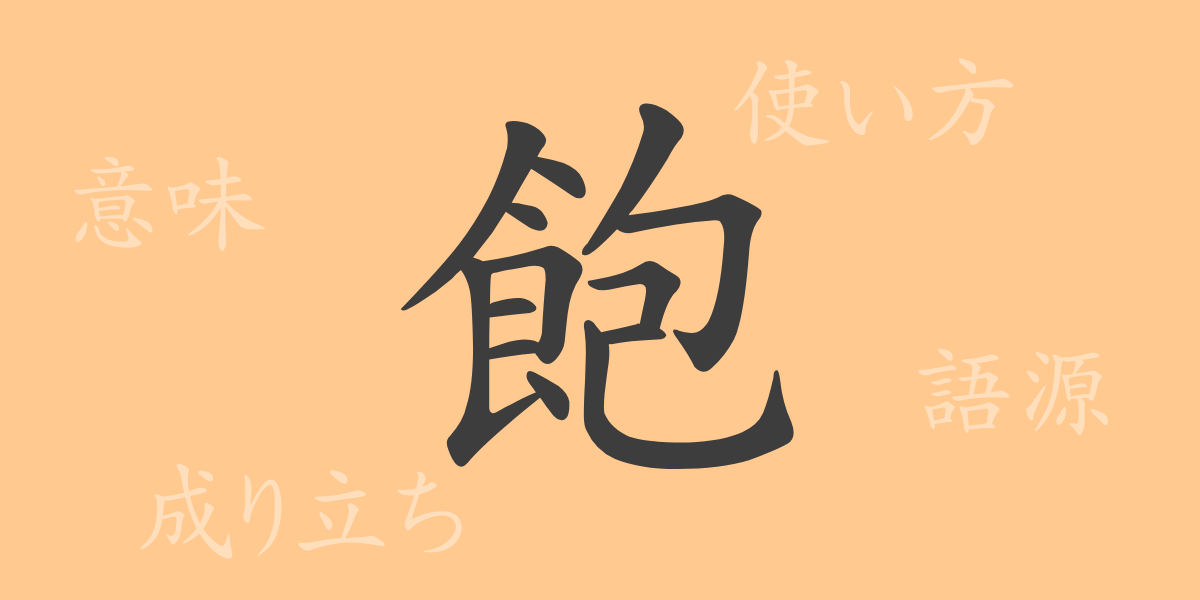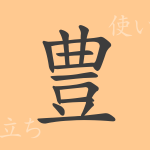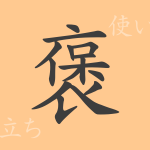In the Japanese language, there is an abundance of words to express emotions and situations, among which the kanji (Chinese character) “飽” (ほう, hō) is a particularly important character frequently used in daily life. This article delves deeply into the commonly used kanji “飽” (ほう, hō), exploring its origins, meanings, usages, and even idioms and proverbs. Let’s step into the world of “飽” (ほう, hō), a symbol of the beauty and complexity of the Japanese language.
Origin of 飽 (ほう, hō)
The kanji “飽” (ほう, hō) is believed to have been created in ancient China to represent a state where there is an abundance of food. It evolved from pictographs and combines the radical for food “食” (しょく, shoku) with “包” (ほう, hō), which signifies eating until one is full. This character not only represents a state of sufficiency and satisfaction but also expresses a psychological shift seeking change when a state reaches its limit.
Meaning and Usage of 飽 (ほう, hō)
The primary meanings of “飽” (ほう, hō) are “to be satisfied” and “to get enough.” In Japanese, it is used in expressions that denote satisfaction or excess, such as “飽きる” (あきる, akiru), “飽和” (ほうわ, hōwa), and “飽食” (ほうしょく, hōshoku). The term “飽きる” (あきる, akiru) refers to a psychological state where something loses its freshness through repeated experience.
Readings, Stroke Count, and Radical of 飽 (ほう, hō)
“飽” (ほう, hō) is used in various readings in Japanese.
- Readings: In On’yomi (Chinese reading), it is read as “ホウ” (ほう, hō). In Kun’yomi (Japanese reading), it can be read as “あ.きる” (あきる, akiru), “あ.かす” (あかす, akasu), and “あ.ける” (あける, akeru).
- Stroke count: The kanji “飽” (ほう, hō) is composed of 12 strokes.
- Radical: The radical for this character is “食” (しょくへん, shokuhen), which relates to food.
Idioms, Proverbs, and Phrases Using 飽 (ほう, hō)
There are many idioms, proverbs, and phrases that include “飽” (ほう, hō), each showcasing the rich expressiveness of the Japanese language. For example, “飽食の時代” (ほうしょくのじだい, hōshoku no jidai) refers to an era of material abundance, while “飽くまで” (あくまで, akumade) expresses a strong will to see something through to the end. Additionally, “飽きる” (あきる, akiru) is a commonly used term in everyday conversation, meaning to lose interest or enthusiasm for something.
Conclusion on 飽 (ほう, hō)
Through this article, you have likely gained a deeper understanding of the profound meanings and usages of the kanji “飽” (ほう, hō). For learners of the Japanese language, mastering the diverse expressions that a single character can convey is crucial. When you encounter words using “飽” (ほう, hō) in daily life, think about the cultural and psychological background behind them and enjoy the richer world of the Japanese language.

























